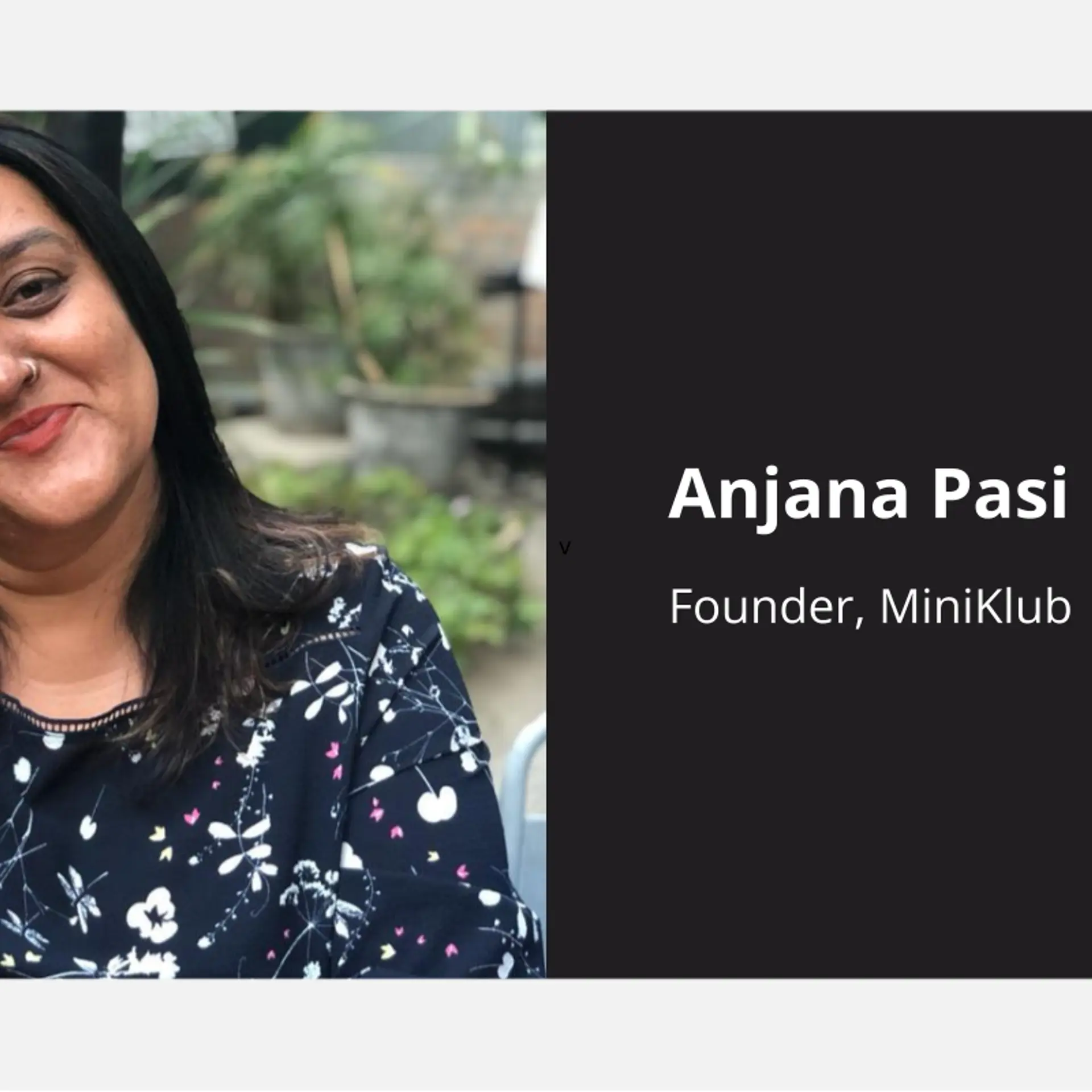Shaken by patriarchy, this woman set up an organisation to empower 20,000 rural women in Bihar through skill training
Anita Gupta’s Bhojpur Mahila Kala Kendra has trained 20,000 women in handicrafts, jewellery making, and sewing as a means to empower them against gender-based violence. Read on to find out more about this Brands of India Awards winner.

Anita Gupta (Right), Founder, Bhojpur Mahila Kala Kendra
Anita Gupta was just 10 years old when she witnessed how vulnerable and expendable women are in Indian society. Her own grandfather ‘bought’ a girl from her parents since his three sons passed away and he need someone to bear his children. Anita watched him beat the girl brutally and it left an indelible impression on the little child. Anita tells SMBStory,
When I saw my grandfather beating that girl, I wondered if this girl was not poor and was educated, she could have stood up for herself and her parents would have not sold her. That incident left a deep mark and I was determined to do something to bring a change."
Hailing from Arrah, Bihar, this Brands of India winner was just in her 20s when she took a bold step to stop gender-based violence. In 1993, with the help of her younger brother, Santosh Kumar, she founded Bhojpur Mahila Kala Kendra with a mission to empower rural women by providing education and employment training to them. The siblings, who lost their parents at a very young age, then went around Bihar and created awareness among women in villages.

Giriraj Singh (second from left) Union Minister of State, MSME with Anita Gupta (second from right)
The journey
With the singular aim of educating and providing skill development training to women so that they are independent, Anita and Santosh conveyed the message of the power of education in every village they visited.
Getting through to women cowering from patriarchy was no easy task, Anita soon realised. Recalling her journey, she says that women at that time were not ready to step out of their houses. Their life revolved around their household duties and looking after their family.
“We used to make them aware and tell them about the importance of education and earning a livelihood. I used to tell them that if they started earning, they would be able to send their children to school,” she says.
And Anita’s path was strewn with several challenges, not the least of which was coming face-to-face with patriarchy. However, in 2000, she received a supporting hand from Amitabh Verma, a senior IAS officer, who extended his help to register Bhojpur Mahila Kala Kendra as a society to avail government support.
Anita’s NGO was then empanelled with Tata Institute of Social Sciences (TISS) and DC Handicrafts, Government of India.
The NGO has also created around 300 self-help groups (SHGs) for livelihood promotion, health check-up camps, adult education, vocational training, and more, all of which are supported by Pact, an international development organisation.

Anita Gupta with the group of rural women
Gradually, Bhojpur Mahila Kala Kendra sought help from the government to introduce handicraft training to rural women. At present, the jewellery made by rural women are sold at various government organised fairs. It is also supplied to various stores located in Delhi, Pune, Mumbai, and other cities.
Since its inception, Bhojpur Mahila Kala Kendra has trained around 20,000 rural women in different skills and at present, it has 200 women in its cluster.
Major challenges
Anita recalls a time when she was not allowed to meet women in a village. They had to seek the permission of the head of the family to talk to the women in their family.
The men used to tell me to get out of their house. They did not allow me to speak to the women for a minute. These men did not want their women to earn a livelihood or create their own identity. They used to warn us, ‘hamari auratein ghoonghat nahi hatayengi’ (our women will not remove their veil).”
Slowly, through sheer determination and perseverance, Anita was able to form a cluster of women to impart training and education.
Today, these women are doing well for themselves. Anita says, “Some women have opened their own boutique and a few have joined schools to provide training to other women. Some women even have formed mushroom cultivation clusters in collaboration and sell them in the market.”

She says that it was a hard journey but, "jab bachpan mein he thaan liya, toh kaun rok sakta tha’ (I was determined to succeed since my childhood, who could stop me now?)"
Anita was conferred an award from the Government of Bihar in 2008 for her work towards the betterment of women. She is also a member of USHA Silai School in Bihar and Jharkhand, where she provides training on sewing machines.
Future prospects
Her journey has been littered with a host of challenges, but that didn’t shake Anita’s determination. She wants to bring more women into her cluster and provide them with education and training.
In the near future, she wants to seek help from the government to open a permanent store for handcrafted items that would generate a regular source of income for rural women.
ALSO READ:
How Baroda-based Puzzle Snacks is tapping rural markets faster than Lays, Haldirams, and Kurkure







